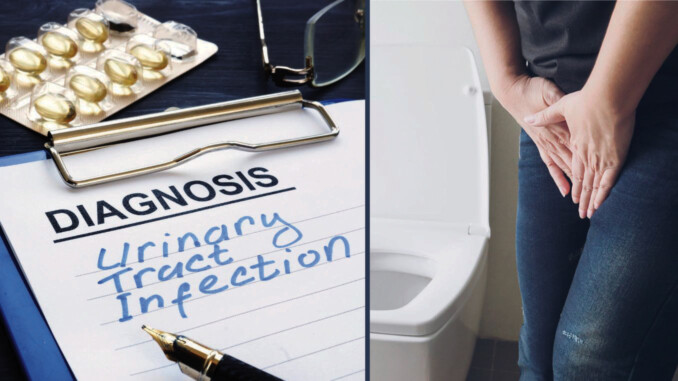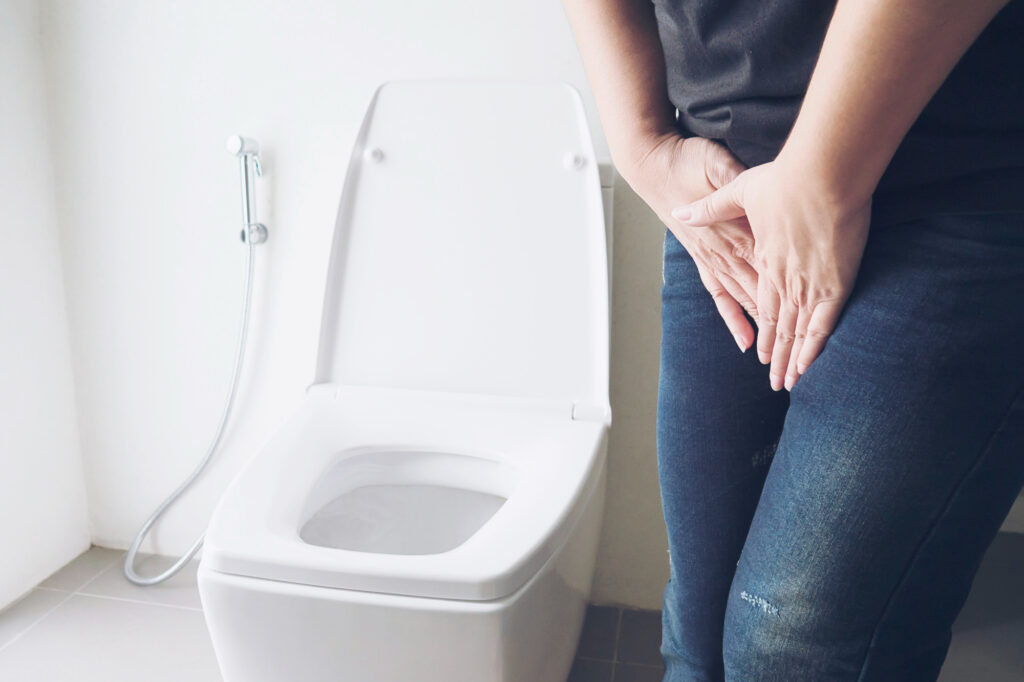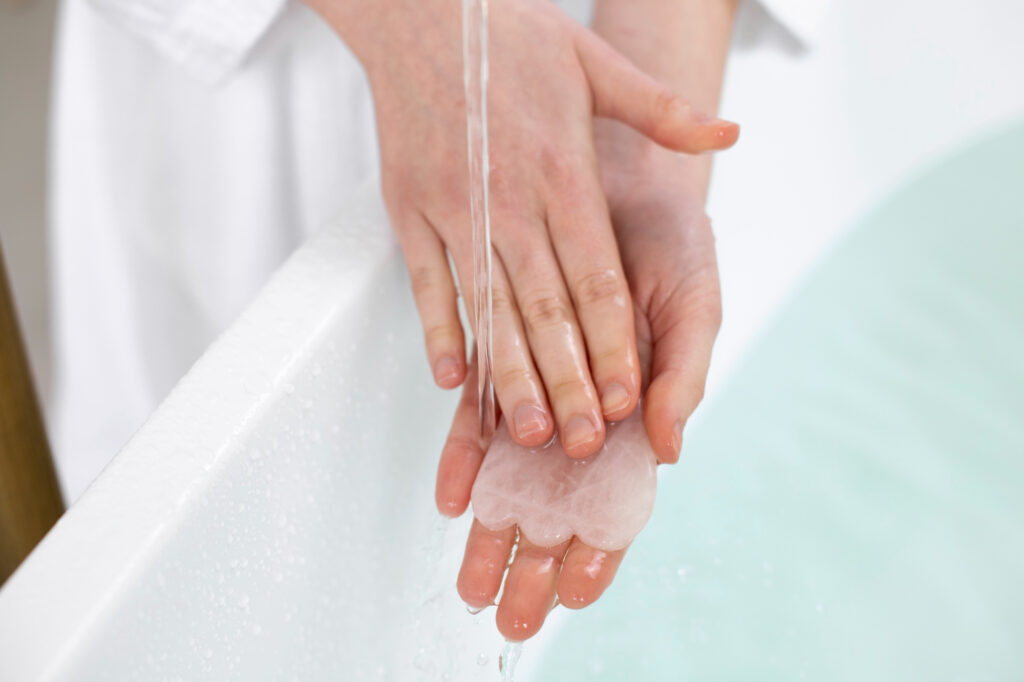Here’s how Malaysians can prevent UTIs from happening to them

Ah, urinary tract infections (UTIs). You probably know someone who’s dealt with it, or maybe you’ve experienced one yourself. It’s not exactly dinner-table conversation, but it’s way more common than you think. In fact, one in two women and one in 20 men will experience a UTI at some point in their lives. Yup, it’s that serious.
While a quick round of antibiotics usually clears things up, ignoring UTI symptoms or delaying treatment could turn it into something much nastier – like a kidney infection or life-threatening urosepsis (that’s when the infection spreads to your bloodstream… yikes!)
Understanding UTIs and their warning signs
A urinary tract infection is exactly what it sounds like – an infection that affects any part of your urinary system. That includes your kidneys, ureters, bladder, and urethra. For most people, though, it hits the bladder the hardest. This is called a cystitis and it’s super common in women because of anatomy. Common symptoms of a UTI include a burning sensation during urination, cloudy or foul-smelling urine, and blood in the urine.

Many individuals also experience a persistent and strong urge to urinate frequently, often feeling unable to hold their urine. In more severe cases, the infection may spread to the kidneys or the bladder, indicated by pain in the lower back or tummy area, where the kidneys and bladders are located. The pain can be accompanied by fever, chills, shivering at night or loss of appetite.
Dr Tan Gaik Imm, Consultant Urogynaecologist at Sunway Medical Centre, Sunway City (SMC) offers her expert insight into UTIs, along with practical advice for reducing the risk of recurring infections to understand this common but often misunderstood condition better.

You can get UTIs from wiping the wrong way
Anatomically, women are at a higher risk due to the short length of the urethra and also the shorter distance between the urethra and anus, making it easier for bacteria to travel from the gut and ascend into the bladder. Hence, women are more prone to getting infected (because getting periods aren’t enough) 🥲.
Suboptimal hygiene such as wiping the wrong way, from back to front after using the toilet can inadvertently introduce bacteria into the urinary tract (pretty sure this point is more for women). Another way one can contract a UTI is through certain contraceptive methods, such as spermicide-coated condoms, create an environment where bacteria can thrive.

“Frequent vaginal infections may also increase UTI risk, so it’s important to manage both issues concurrently.”
Dr Tan Gaik Imm
For those living with diabetes, the risk is heightened further, as the body’s ability to fend off infections is compromised (their immune system is weaker). Postmenopausal women are particularly vulnerable due to the natural dryness that occurs in the vaginal and urinary tracts can upset the delicate balance of protective bacteria.
These factors are key in understanding why some individuals are more prone to recurring UTIs and recognizing them is crucial for prevention.
Everyday habits that can prevent the risks of infection

There are simple ways to prevent UTIs and it starts with everyday habits that makes a difference. For example, urinating both before and after sexual activity as it may help reduce the chances of bacteria entering the urinary tract.
Other ways you can prevent UTIs are by staying hydrated by drinking 1.5 to 2 litres daily to flush bacteria from the urinary system. Changing pads or liners regularly during menstruation to reduce bacterial buildup. For menstrual cup users, washing your hands and the cup before and after inserting or removing it helps minimise the risk of infections.

Proper hand hygiene includes washing hands after using the toilet and before, as hands can carry bacteria from surfaces touched throughout the day. Wearing breathable underwear such as cotton to help maintain better hygiene and reduce the risk of infections.
For women who frequently get UTIs yet enjoy swimming should change out of wet bathing suits ASAP after swimming, since humidity and moisture promote bacteria growth, increasing the risk of UTI. If this doesn’t resolve the issue, they should consider changing swimming venues or not utilising the pool for a few weeks, even if it is chlorinated, to see if their symptoms improve.

The key to preventing recurrent UTIs may be combining personalised approaches, including trial-and-error with supplements and adopting better hygiene practices. There’s also been growing interest in cranberry supplements as a natural remedy for UTI prevention.
“Cranberry capsules can sometimes help, but their effectiveness varies, with success rates hovering around 50-60%. Not all cranberry products are created equal. Some cranberry juices in the market may lack sufficient cranberry content and could be loaded with sugar, which can concern people with diabetes.”
She also shares that one misconception about UTIs is that half-squatting at the toilet can help prevent them.
“This is not a good practice, as it is essential to sit properly or full squat on a squat toilet to relax the pelvic floor and ensure complete bladder emptying,”
Don’t wait for it to get worse… treat UTIs early!
Here’s the thing about UTIs – early detection can make a huge difference. Dr. Tan explains that a simple urine test is often all it takes to detect the infection. If your symptoms persist, a urine culture can help identify the exact bacteria causing the issue and guide the right treatment.
“Early diagnosis and timely treatment are your best defence against a UTI escalating into something far more dangerous.”

“Often, when patients first experience symptoms like a burning sensation during urination, they attempt to self-manage by drinking more water or trying over-the-counter remedies,”
But while those might offer temporary relief, they’re not always enough to fully treat the infection. Waiting too long can lead to complications like kidney infections or even urosepsis. Dr. Tan stresses the importance of seeking medical attention if symptoms persist for more than two to three days.
Next you feel that burning sensation when you pee, it could be an infection. Get checked and stay safe, responsible and healthy!



